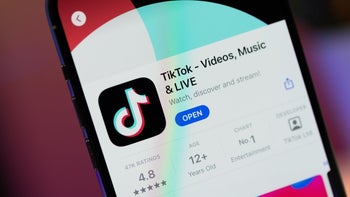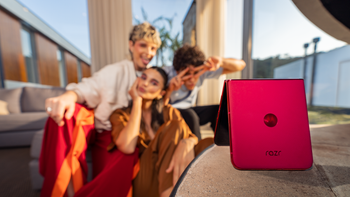TikTokers worry that they won’t be able to “educate” kids if TikTok is banned

The purpose of a system is what it does. Not what it says it’s doing.
Reuters has compiled a new report titled “Content creators worry about miseducation in a world without TikTok”, presenting several TikTokers’ worries about a potential TikTok ban.
As you probably know, the government thinks TikTok is a national intelligence hazard. The goal is ByteDance to sell its interests in the viral short video app, or face a ban in the US. If everything goes to plan (if the bill passes and Joe Biden signs it), ByteDance will have a 165-day deadline to divest from TikTok. Should it not pass the control of TikTok to an American-based company, US app stores (like Apple's, Google's, and Samsung's) would be prohibited from offering TikTok in the country.
The report tells the story of an unnamed public school teacher in a small rural Southern town, who got her students watching the grammar lessons she assigned them via TikTok. Here’s what she says:
Plastic surgeon Dr. Youn, who has 8.4 million followers on TikTok, says that “There's a huge segment of TikTok where you get your news, so it's about being educated.”
Another TikToker with 1M+ followers says that “TikTok is a wealth of knowledge”. This account is educating kids in their formative age with topics such as “body positivity” and “trans identity”.
None of this is a concern for University of Southern California professor Karen North, who warns her students that personal data is in danger on TikTok: “My concern with TikTok is less about what information is provided or manipulated or whether it's skewed toward one message or another,” North, the founder and former director of USC Annenberg’s Digital Social Media program told Reuters.
“It's more toward what kind of personal information are people voluntarily giving up to an entity that does not have the same standards for privacy that we (the United States) do. That's the big issue with TikTok,” she added.
I can feel my editor’s growing panic behind me, so I’m trying my best not to turn this into a rant, and inject my personal opinion on TikTok’s effect on the population, and especially on kids, so it’s best to stop right now. Some food for thought: if the government gets its way, who's next after TikTok? Or, for example, if it's sold to a US-based company, does that mean that all of a sudden, there are no more issues with TikTok and other social media platforms? Not to mention the “freedom of speech” angle…
Reuters has compiled a new report titled “Content creators worry about miseducation in a world without TikTok”, presenting several TikTokers’ worries about a potential TikTok ban.
As you probably know, the government thinks TikTok is a national intelligence hazard. The goal is ByteDance to sell its interests in the viral short video app, or face a ban in the US. If everything goes to plan (if the bill passes and Joe Biden signs it), ByteDance will have a 165-day deadline to divest from TikTok. Should it not pass the control of TikTok to an American-based company, US app stores (like Apple's, Google's, and Samsung's) would be prohibited from offering TikTok in the country.
In a day, I had one thousand followers, in a week I had ten thousand, and in six weeks I had one hundred thousand followers. Within six months, I had a million and a half. When you talk about the ban, you are talking about taking access to high quality educational videos away from people who have used it to enhance their education.
Now, she has 5.8 million followers on TikTok, but her educational content now faces a threat.
Plastic surgeon Dr. Youn, who has 8.4 million followers on TikTok, says that “There's a huge segment of TikTok where you get your news, so it's about being educated.”
Another TikToker with 1M+ followers says that “TikTok is a wealth of knowledge”. This account is educating kids in their formative age with topics such as “body positivity” and “trans identity”.
None of this is a concern for University of Southern California professor Karen North, who warns her students that personal data is in danger on TikTok: “My concern with TikTok is less about what information is provided or manipulated or whether it's skewed toward one message or another,” North, the founder and former director of USC Annenberg’s Digital Social Media program told Reuters.
“It's more toward what kind of personal information are people voluntarily giving up to an entity that does not have the same standards for privacy that we (the United States) do. That's the big issue with TikTok,” she added.










Things that are NOT allowed: